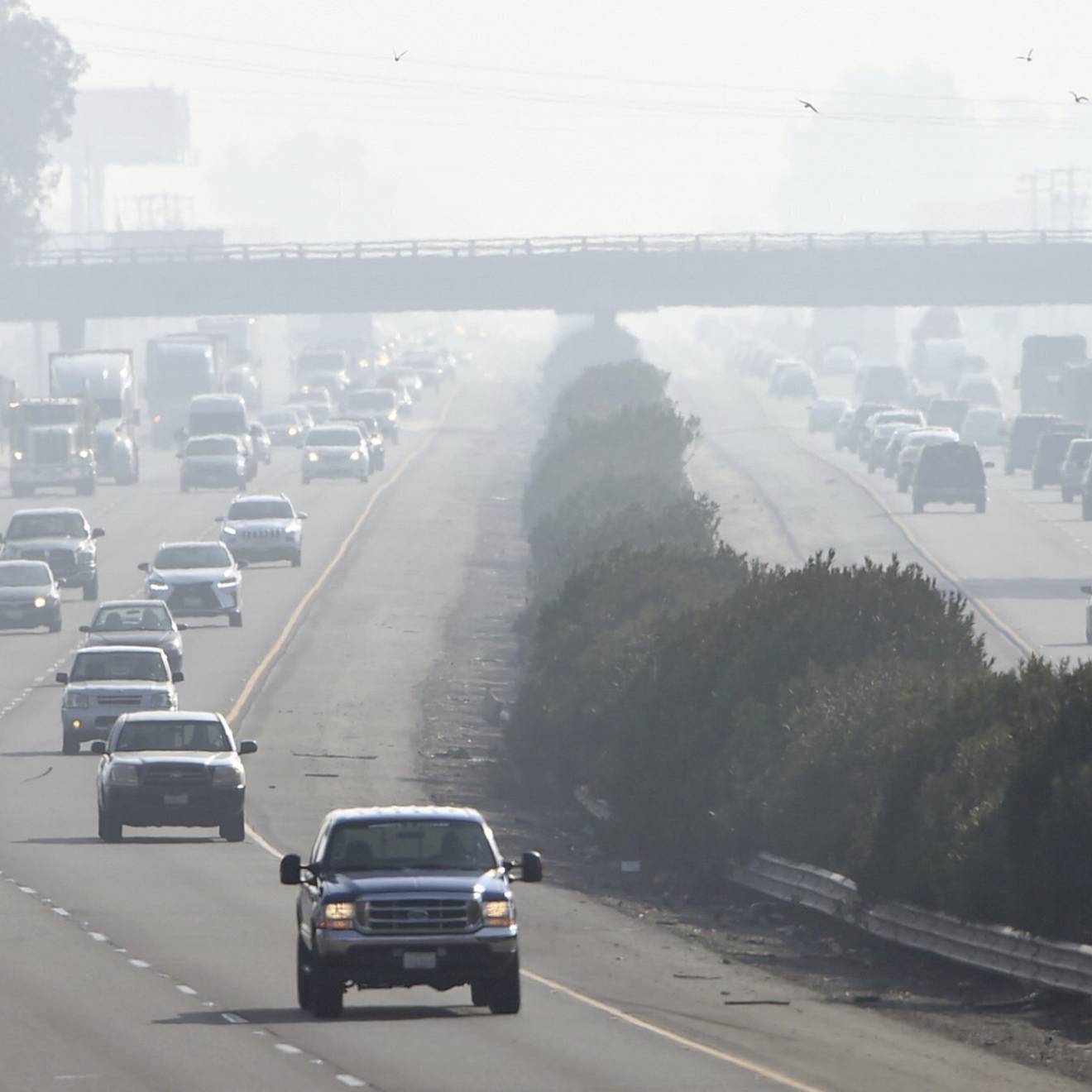Julia Busiek, UC Newsroom

Californians are staring down an unusually long and dangerous heat wave. Public health officials are opening cooling centers and urging caution as folks head out to celebrate the Fourth of July in what the National Weather Service says could be several days of 110-degree temperatures.
There’s no question that kind of heat is hazardous to your health. But why? What happens to our bodies when we get too hot? And what can we do to stay safe?
As the forecast came into focus this week, we caught up with Tarik Benmarhnia, an environmental epidemiologist at the Scripps Institution of Oceanography at UC San Diego. He studies the many ways that climate affects our health, what makes some people more vulnerable to climate hazards than others, and what communities and officials can do to prepare and protect people.
University of California: What’s happening inside our bodies on a hot day?
Tarik Benmarhnia: There’s a region of the brain called the hypothalamus, and one of its functions is to act as our internal thermometer. When the hypothalamus senses higher temperatures, it triggers a bunch of different processes to try to cool the body down. The main one is to send as much blood toward your skin as possible for evapotranspiration. Through this process, some of the water in your blood gets turned into sweat, which also helps conduct heat away from your body. That’s also to carry heat toward the surface so it can radiate away more easily.

UC San Diego environmental epidemiologist Tarik Benmarhnia.
UC: Why do we feel icky in the heat?
TB: To have as much water exchange with the external environment as possible is to send as much blood as possible into the circulation system. Your heart starts beating harder to circulate more blood. Blood carries heat and water, but it also carries oxygen, so when your body is trying to cool itself down by sending blood to your skin, you get less oxygen to vital organs, including your brain. That’s the main reason we feel a little dizzy when we’re hot: it’s because our brain isn’t getting the oxygen it’s supposed to.
Then, if you’re losing water as sweat, you can get dehydrated. That puts more stress on your filtration system, so your kidneys and liver can’t function as well. Also, because of the dehydration, there is an increase in gut permeability. So things that you really want to stay on the inside of your gut, like bacteria and viruses, those can make their way through the wall of your gut and into your bloodstream. That can lead to inflammation and infections (which can lead to sepsis).
UC: Why does heat affect some people more than others?
TB: If you have a cardiovascular condition or chronic obstructive pulmonary disease for example, that increase in circulation in response to heat can overwhelm a heart or lungs that are already stressed. If you have metabolic disease, dehydration could lead to severe issues such as acute renal failure.
But this is really just to give you a snapshot of what happens when our body is exposed to heat. The main point is that heat is a sneaky killer. Most people that are going to die because of heat are going to die many hours later or many days later, because of the consequence of how their bodies process heat. They’ll die of conditions like heart attacks, acute renal failure or asthma attacks.
UC: How deadly is extreme heat?
TB: The CDC estimates that between 600 and 700 people die of heat stroke in the U.S. each year. But those are just the people for whom a coroner has determined, without any ambiguity, that heat was the primary cause of death, so like, someone who’s found with an empty water bottle at the bottom of the Grand Canyon. Taking into account all of the indirect causes of death related to heat, this number can go up to 12,000 to 20,000 people dying every year because of extreme heat in the U.S.
UC: Have we seen an increase in heat illness and heat-related deaths in California as the climate has warmed?
TB: It’s an interesting question, actually. So we do see an absolute increase in the number of people impacted by extreme heat in California. At the same time, people and society are adapting and acclimatizing to higher temps. That’s happening on a physiological level to a marginal extent, with some epigenetic changes that might make someone physically better able to cope with heat. But most of the adaptations that have made a difference are structural. We have newer housing, more air conditioning, and improvements in the ways we plan, prepare for and respond to episodes of extreme heat.
So temperatures that used to kill a lot of people 20 or 30 years ago don’t kill as many people nowadays. On the other hand, we’re seeing those extreme temperatures happen more often. It’s fortunate that we’ve made these adaptations, because otherwise the burden of extreme heat would be even more gigantic.
UC: What are some of the biggest mysteries in the realm of heat stress that still need more research?
TB: Most of the research and response focuses on the acute, short-term effects of heat and how to deal with them. But we don't know at all what happens to a body when it’s repeatedly exposed to extreme heat events over weeks, months and years. This is extremely difficult to study, but we really need to understand it because we need to stop thinking that extreme heat is an exceptional, isolated phenomenon. Maybe it used to be, but that’s not the case anymore.
UC: Any advice for Californians during the upcoming heat wave?
TB: It is not a good idea to go and start training for a marathon this weekend. Stay home if you can and take it easy and if you work outdoors, try to adapt your working hours, if possible. Drink more water than you think you’ll need and try to eat a lighter diet.
Be aware of the early symptoms of heat stress. If you feel fuzzy, or get some kind of headache, you need to rest, cool your body temperature down and drink enough water. If you notice your pee is dark, that’s your cue that you need to increase your water consumption.
Finally, check in on your loved ones. If you know your neighbor or someone in your family lives alone or has a chronic condition, just be in touch with them throughout the day. Stop by or call, make sure they have what they need and they can stay cool and hydrated. That’s probably one of the most important things that can help keep people safe.

